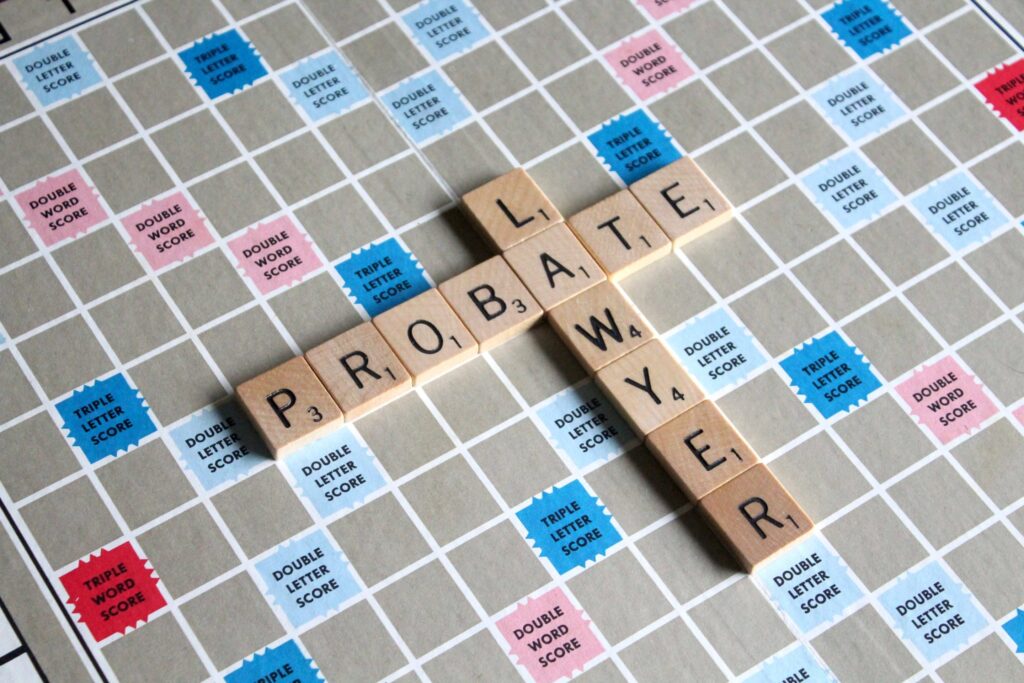The last article explored the procedure for obtaining a common form grant of probate. This article shall highlight the procedure for obtaining a Solemn Form grant of probate.

Procedure for Contentious grants (solemn form)
An application for probate is contentious when:
- The validity of the Will is contested
- The appointment of an executor is challenged
- Probate is sought to be revoked or denied
- Members of the family disagree on who to appoint as administrator (especially in a polygamous family)
The procedure is as follows:
- Discovery, marking and reading of the Will
- Application for probate by executors
- Publication of the application for grant of probate
- Caveat
- Citation/warning
- Appearance to citation/warning
- Probate action (full trial)
- Grant or refusal of grant depending on the outcome of the probate action
After reading a Will, beneficiaries may encounter various problems, such as the Will not being executed by the testator or disputes arising over the appointed executors. In cases of intestate administration, disagreements among beneficiaries regarding the appointment of an administrator may occur. In such situations, after the publication of the application for grant of Probate or Letters of Administration, any family member with an interest in the deceased’s estate can lodge a caveat or notify the Probate Registrar, preventing the grant from being issued until a court decision is made.
What is a Caveat?
Caveat is issued to challenge an application for grant of probate. A probate application becomes contentious when a caveat is filed against it. In other words, the filing of a caveat is what makes a probate application contentious. In Lagos, a caveat lasts for 3 months, while in Abuja it lasts for 6 months. During the period that a caveat is in effect, probate should not be issued or granted. The probate registrar must not make a grant if they are aware of a filed caveat unless it is either discharged or withdrawn.
Upon filing a caveat, it must be served on the probate applicants. The applicants are required to issue a WARNING or CITATION using the specified Form 5 (Lagos) or Form 190 (Abuja) against the caveator. The citation served on the caveator serves the purpose of requesting them to declare their interest and claim under the will. A caveator is to enter appearance within 8 days of service of the citation on him. Notice of appearance is in probate Form 6 (Lagos) and Form 191 (Abuja). A caveator may however decide not to enter appearance and withdraw his caveat.
After an appearance has been entered, the hearing will be scheduled. Probate will not be granted to the applicant until the matter is fully heard. The issuance of a caveat determines whether probate will be granted in solemn form. Any probate granted after the hearing of an entered caveat is considered probate in solemn form.
The four instances where a caveat ceases to be effective are as follows:
- Where the caveator fails to enter appearance to a warning or citation within the prescribed eight (8) days and the Citor files an affidavit to that effect. Thus, once the affidavit is filed by the Citor, the caveat immediately becomes ineffective
- A caveat becomes ineffective by effluxion of time after 3 months (Lagos) or 6 months (Abuja) unless it is renewed by the filing of further caveats
- Where, to the knowledge of the caveator, there is a pending matter in court concerning the Will and he still goes ahead to file a caveat. Such a caveat is ineffective
- Where the caveator withdraws his caveat.
What is a Citation?
In a probate grant in solemn form, the applicant (usually the executor) issues a citation to the caveator, demanding disclosure of any conflicting interests in the testator’s estate by entering an appearance which he has in the estate of the testator, contrary to that of the Citor. The citation follows the format of Form 5 in Lagos or Form 190 in Abuja. The issuer of the citation is known as the CITOR, while the executor against whom it is issued is the CITEE.
Where a citation is issued, the caveator must enter an appearance within 8 days. If the executor fails to enter an appearance, the issuer of the citation can apply for an order granting them probate or an order terminating the caveator’s rights.
Probate Action
If an appearance is made in response to a citation, the dispute will be resolved in court. During the court proceedings, temporary administration, or limited grants pendente lite may be granted to safeguard the estate.
Documentation
While there exists some similarity between these two types of grants, there are a few additions. The documents needed to obtain a grant of probate in solemn form (contentious) and which will accompany the application for Grant of Probate are:
- Application for grant of probate (whether by Letter (Lagos) or Petition (Abuja)).
- A copy of the Will
- The Death certificate of the testator
- Proof of identity of the applicant(s) and proof of identity of the testator such as drivers’ licence, national I.D., international passport etc.
- Affidavit stating the place and date of death of the testator and his place
- Declaration of all the personal properties of the testator
- Affidavit of due execution and affidavit as to handwriting, if applicable.
- Bank certificate
- Duly completed inventory specifically listing the properties of the testator
- Passport photographs of the executors and attesting Witnesses.
- Caveat Form
- Citation/warning as in Form 5 (Lagos) or Form 190 (Abuja)
- Notice of appearance as in Form 6 (Lagos) or Form 191 (Abuja)
- Writ of summons
It is necessary to take notice that once the personal representatives comply with the requirement of the law on Grant of Probate and Letters of Administration, the court will be quick to grant probate and the representatives can administer the estate in accordance with the Will of the testator. It is also important to note that the only way in which real properties can be transferred to the beneficiaries of such is by Assent which is a legal document.
Conclusion
In conclusion, obtaining a Solemn Form grant of probate can be a complex and lengthy process, particularly when the validity of the Will or the appointment of an executor is contested, or there are disagreements among family members. The filing of a caveat can make a probate application contentious, and a citation is used to demand disclosure of any conflicting interests in the estate. The probate action is resolved in court, and temporary administration or limited grants may be granted to safeguard the estate. With several documents required, it is crucial to seek legal advice to navigate the process successfully.

